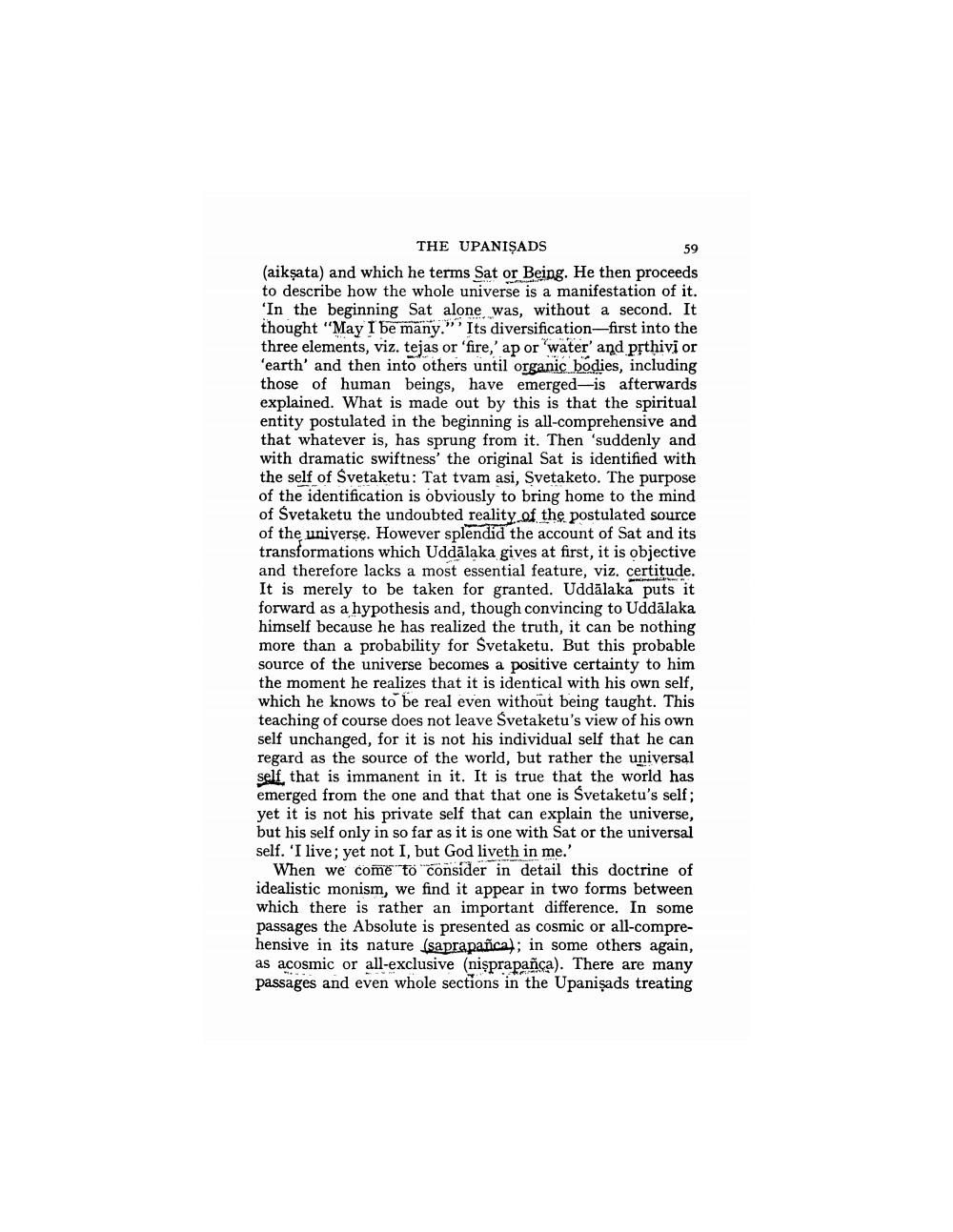________________
THE UPANIŞADS (aiksata) and which he terms Sat or Being. He then proceeds to describe how the whole universe is a manifestation of it. 'In the beginning Sat alone was, without a second. It thought "May I be many." Its diversification-first into the three elements, viz, tejas or 'fire,' ap or 'water' and prthivi or earth' and then into others until organic bodies, including those of human beings, have emerged-is afterwards explained. What is made out by this is that the spiritual entity postulated in the beginning is all-comprehensive and that whatever is, has sprung from it. Then 'suddenly and with dramatic swiftness' the original Sat is identified with the self of Svetaketu: Tat tvam asi, Svetaketo. The purpose of the identification is obviously to bring home to the mind of Svetaketu the undoubted reality of the postulated source of the universe. However splendid the account of Sat and its transformations which Uddālaka gives at first, it is objective and therefore lacks a most essential feature, viz. certitude. It is merely to be taken for granted. Uddalaka puts it forward as a hypothesis and, though convincing to Uddalaka himself because he has realized the truth, it can be nothing more than a probability for Svetaketu. But this probable source of the universe becomes a positive certainty to him the moment he realizes that it is identical with his own self, which he knows to be real even without being taught. This teaching of course does not leave Svetaketu's view of his own self unchanged, for it is not his individual self that he can regard as the source of the world, but rather the universal self that is immanent in it. It is true that the world has emerged from the one and that that one is Svetaketu's self; yet it is not his private self that can explain the universe, but his self only in so far as it is one with Sat or the universal self. 'I live; yet not I, but God liveth in me.'
When we come to consider in detail this doctrine of idealistic monism, we find it appear in two forms between which there is rather an important difference. In some passages the Absolute is presented as cosmic or all-comprehensive in its nature (saprapanca); in some others again, as acosmic or all-exclusive (nişprapañça). There are many passages and even whole sections in the Upanişads treating




